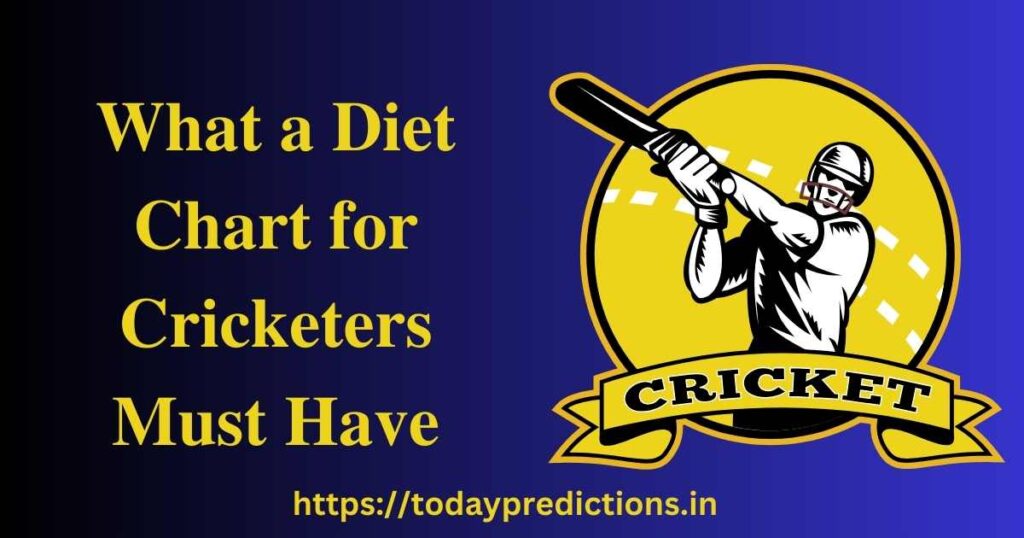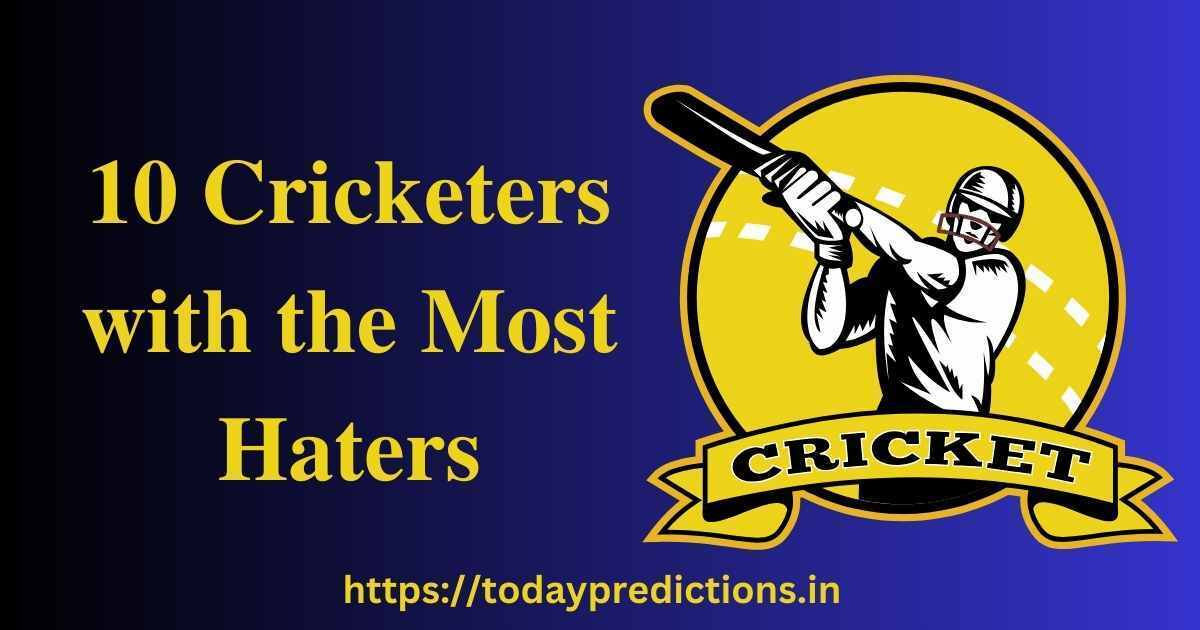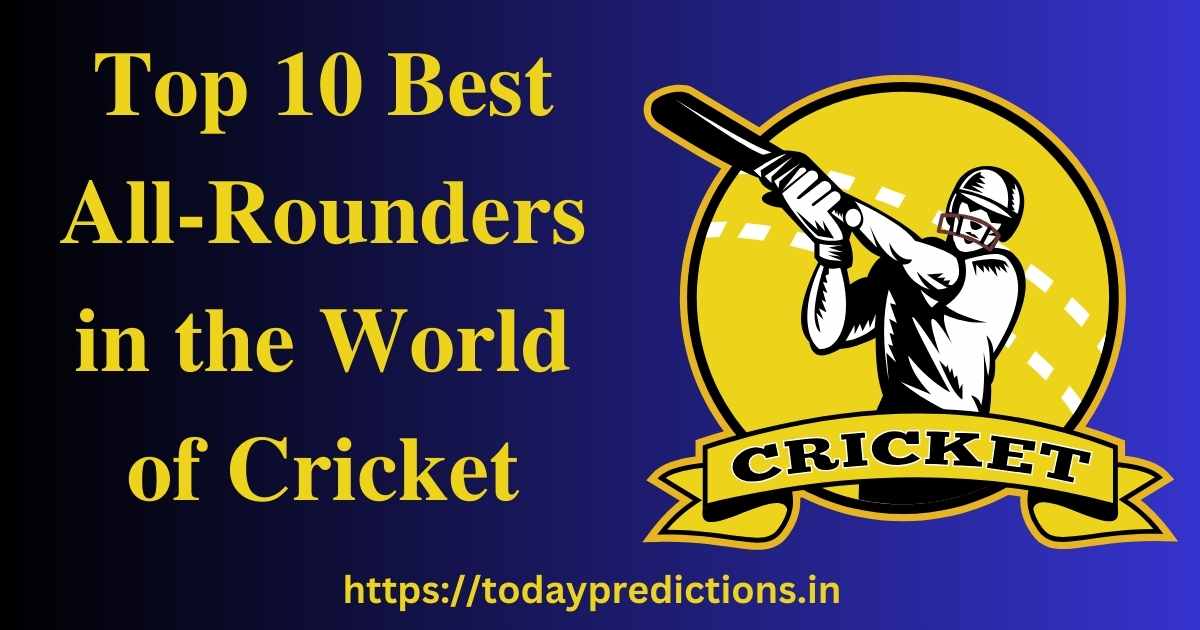
Explore the essential components of a diet chart for cricketers, including hydration, carbohydrates, proteins, healthy fats, vitamins, and minerals. Learn how proper nutrition is key to achieving peak performance on the cricket field.
Table of Contents
What a Diet Chart for Cricketers Must Have
Cricket is a physically demanding sport that requires stamina, strength, and agility. To perform at their best, cricketers need to maintain a well-balanced diet that provides them with the necessary nutrients and energy. In this article, we’ll explore the essential components of a diet chart for cricketers, ensuring they have the fuel they need to excel on the field.
Here are some tables to illustrate the key components of a diet chart for cricketers:
Table 1: Macronutrient Breakdown
| Nutrient | Recommended Daily Intake |
|---|---|
| Carbohydrates | 55–60% of total calories |
| Proteins | 15-20% of total calories |
| Healthy Fats | 20–25% of total calories |
Table 2: Food Sources for Macronutrients
| Macronutrient | Food Sources |
|---|---|
| Carbohydrates | Whole grains (brown rice, oats), fruits, vegetables |
| Proteins | Lean meats (chicken, fish, lean beef), legumes (beans, lentils), tofu |
| Healthy Fats | Avocado, nuts (almonds, walnuts), olive oil, fatty fish (salmon) |
Table 3: Essential Vitamins and Minerals
| Nutrient | Role in Cricket Performance | Food Sources |
|---|---|---|
| Vitamin C | Immune support and recovery | Citrus fruits and berries |
| Vitamin D | Bone health and immune function | Sunlight, fortified dairy products |
| Iron | Oxygen transport in the blood | Red meat, beans, and spinach |
| Calcium | Bone and muscle health | Dairy products, leafy greens |
| Magnesium | Muscle function and energy production | Nuts, seeds, and whole grains |
| Potassium | Electrolyte balance and muscle function | Bananas, potatoes, and spinach |
Table 4: Sample Pre-Match Meal
| Food Item | Quantity |
|---|---|
| Brown Rice | 1 cup cooked |
| Grilled Chicken Breast | 4-6 ounces |
| Steamed Broccoli | 1 cup |
| Olive Oil (for dressing) | 1 tablespoon |
Table 5: Sample During-Match Snacks
| Food Item | Quantity |
|---|---|
| Energy Bar | 1 |
| Banana | 1 |
| Electrolyte Drink | 8-10 ounces |
Table 6: Sample Post-Match Meal
| Food Item | Quantity |
|---|---|
| Quinoa (or Brown Rice) | 1 cup cooked |
| Grilled Salmon | 4-6 ounces |
| Steamed Asparagus | 1 cup |
| Mixed Berry Salad | 1 cup |
| Greek yoghurt (for dessert) | 6 ounces |
Please note that these tables provide general recommendations and sample meal ideas. Individual dietary needs may vary, and it’s essential for cricketers to consult with a sports nutritionist or dietitian to create a personalised diet plan that aligns with their specific goals and requirements.
Hydration: The Foundation of Performance
Proper hydration is fundamental for athletes. Cricketers, who often play in hot and humid conditions, need to pay special attention to staying hydrated. Water is the primary source of hydration, but electrolyte-rich drinks can also help replenish lost minerals during intense matches.
Carbohydrates: The Energy Source
Carbohydrates are the primary source of energy for cricketers. Complex carbohydrates like whole grains, brown rice, and oats should form a significant portion of their diet. These provide sustained energy, crucial for long hours of batting, bowling, and fielding.
Proteins: Muscle Repair and Growth
Proteins play a vital role in muscle repair and growth. Lean sources like chicken, fish, lean meats, and plant-based options like beans and tofu should be included in a cricketer’s diet. Protein intake helps recover from the physical demands of the game and maintain muscle mass.
Healthy Fats: Essential for Endurance
Healthy fats are essential for endurance, and they can be found in sources like avocados, nuts, seeds, and olive oil. They provide a source of long-lasting energy, helping cricketers stay focused and energised throughout a match.
Vitamins and Minerals: Immune Support
Vitamins and minerals are crucial for overall health and immune support. Incorporate a variety of fruits and vegetables into the diet to ensure a wide range of essential nutrients. Vitamin C, found in citrus fruits, is particularly important for immune function.
Timing is Key: Pre- and Post-Match Nutrition
Pre-Match Nutrition (3–4 Hours Before): A meal rich in carbohydrates, lean protein, and some healthy fats is ideal. This provides sustained energy and ensures cricketers don’t feel sluggish during play.
During-Match Nutrition: Easily digestible snacks like energy bars, bananas, and electrolyte drinks can help maintain energy levels during breaks in play.
Post-Match Nutrition (Within 2 Hours): A balanced meal with a focus on protein helps in muscle recovery and replenishing energy stores.
Special Considerations: Travel and Recovery
Cricketers often travel extensively for matches. It’s crucial to plan meals and snacks for travel that maintain their dietary requirements. Additionally, recovery meals should include foods rich in antioxidants, like berries, to aid in muscle recovery.
Individualised Plans
Each cricketer may have specific dietary needs based on their position, body type, and performance goals. Working with a sports nutritionist or dietitian to create an individualised diet plan can optimise performance and recovery.
Top 10 Most Overrated Cricketers of All Time Ranked
5 Most Educated Indian Cricketers Ever
List of cricketers banned for corruption
5 Best Catches In Cricket History
Conclusion
A well-structured diet chart is essential for cricketers to meet the demands of their sport. By focusing on hydration, carbohydrates, proteins, healthy fats, vitamins, and minerals, and tailoring nutrition to their specific needs, cricketers can ensure they have the fuel necessary to perform at their best on the cricket field. Proper nutrition is a key ingredient in their recipe for success.
Originally posted 2023-10-05 09:09:44.





